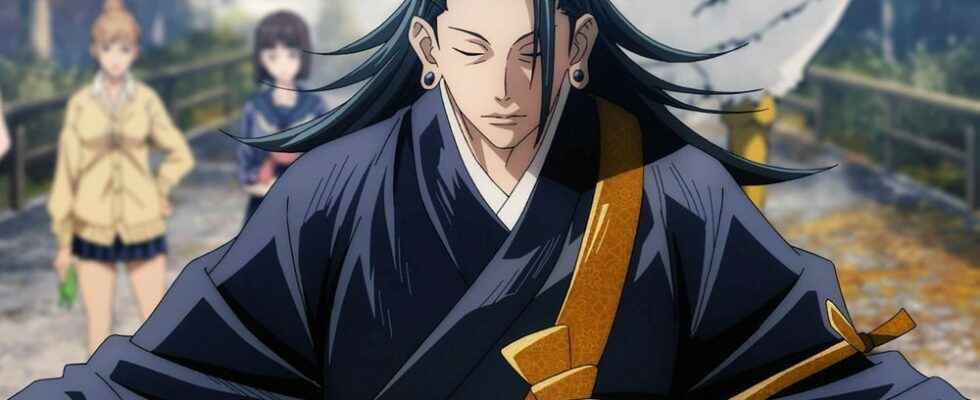Animeaction
”Jujutsu kaisen 0: The movie ”
Director: Seong-hu Park.
Manus: Hiroshi Seko. Starring: Chinatsu Akasaki, Aya Endô, Kana Hanazawa, and more. Duration: 1 hour 44 minutes (11 years). Language: Japanese. Biopremier.
Show more
Growing up as a Japanese person in the 80’s and 90’s, I can get madly jealous of today’s offerings. Swedish-subtitled anime in the original language, on a large screen? Outside the Mangakai association’s screenings, it had been an unthinkable fantasy.
But in other ways, the assortment of the time is reminded of “Jujutsu kaisen 0: The movie”. A prequel about the events before the TV series, based on Gege Akutami’s manga, where the story rushes forward with a compressed hatred reminiscent of Swedish-dubbed video relics such as “Ken: The Fighter for Justice” (1986) – a film that was in fact a cut-and-dried of some TV series episodes.
As fast as backbiting, the black magician Yuta is introduced, a suicidal teenager whose gift and curse are rooted in a violent childhood trauma. At Jujutsu High School, he even gets a chance to control his powers. He and his classmates get to test their abilities on different monsters in rushed situations. “I have decided to change, here and now,” says the main character to grandiose music in a character-building climax.
Then it has been about twenty minutes. It feels like fast-forwarding through a couple of episodes with a “monster of the week” layout, similar to that in series like “Buffy and the Vampires”.
As fast as anything else The film’s great villain is introduced: a former Jujutsuelev whose enormous hatred of man – he calls them “monkeys” – once made him jump off and start a bloodthirsty sect. When a war breaks out between the school and the sect, the uncommitted narrative makes a welcome jolt.
Even the previously so rigid animation, more worthy of a TV than canvas experience, comes to life in beautifully messy and dazzling battle sequences. Several eccentric figures – some of whom are thrown into the game so quickly that it becomes uncertain which side they belong to – unleash forces that mash up urban environments.
Yuta is armed with a manifestation of his dead childhood love whose girlish voice stands in stark contrast to the monstrous figure. Anxiety, usually something self-destructive, becomes an outward superpower here. Magic as therapy, then. In the heat of the moment, shrill declarations of love are uttered to upload explosive attacks performed to cheeky music.
At all marked the aesthetics of hypersensitivity. Extremely visible redness, fist-sized beads of sweat and humorous mine games break sharply with the rest of the seriousness.
The tone changes are quite typical for certain types of anime, but here the effect is of varying quality. “Do you like small or big tits?”, Yuta is asked by a talking pervo-panda who is less funny than what is supposed to have been. The filthy humor itself is not so shocking, but it undeniably feels like an odd element in a press screening context.
Of course, the animal horniness can also be justified, as can the mood swings, the irregularities and the gaping. All this reflects the main character’s instability, in a film that resembles a concentrate of emorock puberty. You get both a little generated and impressed.
See more. Memorable film magic: “Spirited away” (2001), “Harry Potter and the Prisoner of Azkaban” (2004), “The prestige” (2006).
Read more film and TV reviews in DN.
